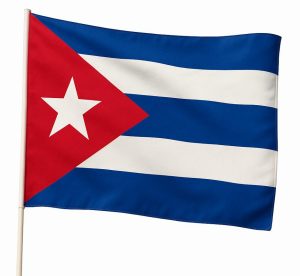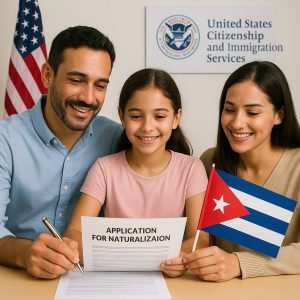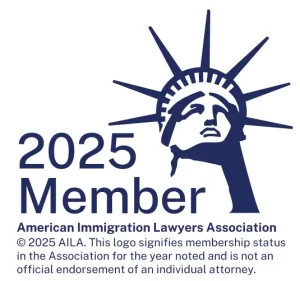The landscape for Cuban nationals seeking permanent residency has fundamentally changed. What was once considered “the easiest path” now requires careful strategy and understanding of recent legal developments that have left thousands ineligible.

For Cuban nationals living in the United States, the Cuban Adjustment Act (CAA) remains one of the most generous pathways to lawful permanent residence—but only if you qualify under the current legal framework. Enacted in 1966 to support Cubans fleeing political turmoil, this landmark law has undergone significant interpretation changes that every Cuban national must understand before proceeding.
If you or your family members are Cuban citizens and have been living in the U.S., this could still be your path to lawful permanent residence—but the rules have changed dramatically since 2023.
⚠️ Critical: The 2023 Game-Changer
Two recent Board of Immigration Appeals (BIA) decisions have created a fundamental divide in CAA eligibility:
Matter of Cabrera-Fernandez (BIA 2023)
The BIA held that “conditional parole” under INA § 236(a)(2)(B) is legally distinct from “humanitarian parole” under INA § 212(d)(5)(A). Only humanitarian parole qualifies for CAA adjustment.
Matter of Roque-Izada (BIA 2025)
The BIA reinforced this distinction, finding that without evidence of humanitarian parole under § 212(d)(5), Cuban nationals cannot demonstrate eligibility for CAA adjustment.
What This Means for You:
- ✅ Humanitarian parole (INA § 212(d)(5)(A)) = CAA eligible
- ❌ Conditional parole (INA § 236(a)(2)(B)) = NOT CAA eligible
- ❌ Form I-220A release = Usually conditional parole (NOT eligible)
If you were released at the border with Form I-220A, you likely received conditional parole, which does NOT qualify you for CAA adjustment under current law.
Strategic Entry Considerations
The Dual Nationality Advantage
Cubans holding dual nationality (such as Cuban-Spanish) face restrictions but may have strategic options:
- Spanish passport holders: Cannot use the Visa Waiver Program due to Cuba’s designation as a State Sponsor of Terrorism
- Strategic visa-based entry: Those who obtain proper visas to enter the U.S., overstay, and maintain physical presence for one year may still qualify for CAA adjustment
- Timing matters: Entering through established visa processes rather than border presentation historically results in better documentation
The Border Processing Reality: Volume vs. Individual Attention
Our analysis suggests that the massive influx of migrants at the southern border (2021-2024) fundamentally changed how CBP processes Cuban arrivals:
High-Volume Era (2021-2024):
- CBP processing up to 25,000 people daily across all nationalities
- Cubans processed as part of general migration flows
- Mass issuance of I-220A forms (conditional parole)
- Limited individual case-by-case analysis
Current Low-Volume Environment (2025):
- Border encounters dropped to 1960s levels (under 300 daily)
- Potential return to individualized CBP officer discretion
- Question: Will humanitarian parole grants resume for qualifying Cubans?
However, the institutional changes from the high-volume period may have permanently altered CBP practices, making humanitarian parole less likely even in low-volume scenarios.
Traditional Eligibility Requirements
To qualify under the CAA, you must:
- Be a native or citizen of Cuba
- Have been inspected and admitted or granted humanitarian parole under INA § 212(d)(5)(A) into the U.S. on or after January 1, 1959
- Have been physically present in the U.S. for at least one year
- Be admissible to the U.S. (waivers may apply for some grounds of inadmissibility)
- Submit Form I-485 to apply for a green card
📌 Critical Update: The previous broad language about “paroled—for example, through CBP One, humanitarian parole, or a port of entry parole stamp” is no longer accurate. Only specific humanitarian parole under § 212(d)(5)(A) qualifies.
Your Family May Be Eligible—Even If They Aren’t Cuban
Your spouse and children (even if not Cuban) may apply under the CAA as your derivatives, provided they:
- ✅ Live with you in the U.S.
- ✅ Were admitted or paroled into the U.S.
- ✅ Meet the same admissibility and physical presence requirements
They can apply with you or after you, and—here’s a major benefit—they’ll receive unconditional green cards. That means no two-year conditional status like marriage-based green cards.
🛡️ VAWA Protections for Survivors of Abuse
If you are the spouse or child of a Cuban national and have experienced domestic violence or extreme cruelty, you may still qualify for a green card under the [Cuban Adjustment Act (CAA)](https://www.uscis.gov/sites/default/files/document/brochures/Immigration Options for Victims of Crimes.pdf) through the VAWA (Violence Against Women Act) provisions—even without the support of the Cuban family member.
You may apply independently if:
- You no longer live with the Cuban spouse or parent
- You were divorced within the last 2 years
- The Cuban spouse or parent died within the last 2 years
- The Cuban spouse lost their green card due to abuse
This important protection allows survivors to access immigration benefits in a safe and confidential way, even after the relationship has ended.
⏳ Residency Rollback Rule: What It Means and Why It Matters
One of the biggest advantages of applying for a green card under the Cuban Adjustment Act (CAA) is the residency rollback rule. When USCIS approves your application, they may choose to backdate your “Resident Since” date on your green card to an earlier time—either:
- 📆 30 months (2.5 years) before the date you filed your green card application, or
- 📆 The date you last entered the U.S. lawfully
Whichever of these two dates is later will be used as your official start of permanent residency.
🔑 Why This Matters:
- Faster Naturalization: Normally, you must wait 5 years after getting a green card before applying for U.S. citizenship. With a backdated “Resident Since” date, you can apply for naturalization much sooner—sometimes immediately after receiving your green card.
- Earlier Access to Federal Benefits: Some government programs like Medicaid and Medicare have residency duration requirements. A backdated green card can help you meet those requirements sooner.
- Quicker Family Sponsorship: You must be a permanent resident for a certain period before sponsoring relatives. The rollback gives you a head start on that timeline too.
In short, the residency rollback rule can save you years on the path to citizenship and unlock important rights and benefits much earlier than other immigration options allow.
Understanding Your Documentation
If you entered at a port of entry, check your documentation carefully:
Humanitarian Parole (CAA Eligible):
- Form I-94 with “Paroled” notation
- Parole stamp referencing INA § 212(d)(5)(A)
- Documentation from CFRP or other formal parole programs
Conditional Parole (NOT CAA Eligible):
- Form I-220A (Order of Release on Recognizance)
- Release documentation referencing INA § 236(a)(2)(B)
- Most border releases during 2021-2024 high-volume period
Inspection and Admission (CAA Eligible):
- Form I-94 with admission stamp
- Entry with valid visa documentation
- Port of entry processing with formal admission
Current Alternatives for Ineligible Cubans
If you don’t qualify for CAA adjustment due to conditional parole, consider:
- Asylum: Many Cuban nationals qualify based on political opinion, nationality, or particular social group membership
- Family-based petitions: If you have qualifying U.S. citizen or permanent resident relatives
- Cuban Family Reunification Parole Program (CFRP): For those with approved I-130 petitions
- Future policy changes: Immigration law evolves, and new pathways may emerge
Frequently Asked Questions (FAQs)
Q: Can I apply if I have dual nationality? ✅ Yes, as long as you can prove Cuban nationality at the time of filing.
Q: I have Form I-220A. Am I eligible? ❗ Generally no. I-220A typically indicates conditional parole under § 236(a)(2)(B), which doesn’t qualify under current BIA precedent.
Q: Can I apply for a work permit while my case is pending? ✅ Yes. You can file Form I-765 for an Employment Authorization Document (EAD).
Q: What if I overstayed or worked without authorization? ✅ The CAA waives these grounds for qualifying applicants.
Q: Will I need an interview? 📍 Possibly. Most CAA cases are processed without an interview, but USCIS may schedule one at its discretion.
Grounds for Inadmissibility and Waivers
Some inadmissibility clauses (e.g., public charge, visa overstays) are not applied to CAA applicants.
Not all inadmissibility issues are waived under the CAA. You may still need to address:
- 🚫 Criminal convictions
- 🚫 Prior deportations or immigration fraud
- 🚫 Certain health conditions
📝 If applicable, we’ll help you file Form I-601 (Application for Waiver of Grounds of Inadmissibility) to keep your case on track.
Naturalization: The Final Step to Becoming a U.S. Citizen

If you received your green card through the Cuban Adjustment Act (CAA), you may be eligible to become a U.S. citizen sooner than you think. Thanks to the CAA’s unique rollback provision, your green card’s “Resident Since” date may be retroactively backdated—giving you a head start toward naturalization.
🗓️ Here’s how it works: USCIS may backdate your permanent resident status by up to 30 months before your filing date, or to the date of your last lawful entry—whichever is later. This can significantly reduce the five-year waiting period normally required before you apply for naturalization.
✅ To apply for naturalization under INA § 316, you must meet the following legal requirements: ✔️ Be 18 years or older at the time of filing Form N-400 ✔️ Have been a lawful permanent resident (LPR) for at least 5 years, calculated from the “Resident Since” date on your green card ✔️ Have resided continuously in the U.S. for those 5 years ✔️ Have been physically present in the U.S. for at least 30 months during the 5-year period ✔️ Have lived for at least 3 months in the state or USCIS district where you apply ✔️ Be able to read, write, and speak basic English ✔️ Demonstrate a basic understanding of U.S. history and government (civics) ✔️ Show good moral character throughout the statutory period ✔️ Be willing to support and defend the U.S. Constitution and take the Oath of Allegiance
The Current Reality: Proceed with Caution
The Cuban Adjustment Act remains a powerful tool for eligible Cuban nationals, but the eligibility landscape has fundamentally shifted. The days of assuming that any Cuban arrival can eventually adjust status are over.
Before proceeding:
- Document review: Carefully examine your entry and release documentation
- Legal assessment: Determine whether you received humanitarian or conditional parole
- Strategic planning: Consider alternative pathways if CAA isn’t available
- Professional guidance: Navigate complex eligibility requirements with experienced counsel
The stakes are higher now. A denied CAA application could trigger removal proceedings and eliminate future opportunities.
Ready to Assess Your Options?
Understanding your eligibility under the current legal framework requires careful analysis of your specific circumstances, entry documentation, and timing. The Cuban Adjustment Act can still be your family’s pathway to permanent status and eventual citizenship—but only with proper planning and realistic expectations.
Contact our office today to schedule a consultation. We’ll review your documentation, assess your eligibility under current law, and guide you through every legal requirement—with one goal: identifying the best path forward for your family’s future.
This analysis reflects the current state of law following Matter of Cabrera-Fernandez (BIA 2023) and Matter of Roque-Izada (BIA 2025). Immigration law continues to evolve, and individual circumstances vary significantly.
By Gabriela Veroes, Legal Assistant at Immigration Law of Montana, P.C.
